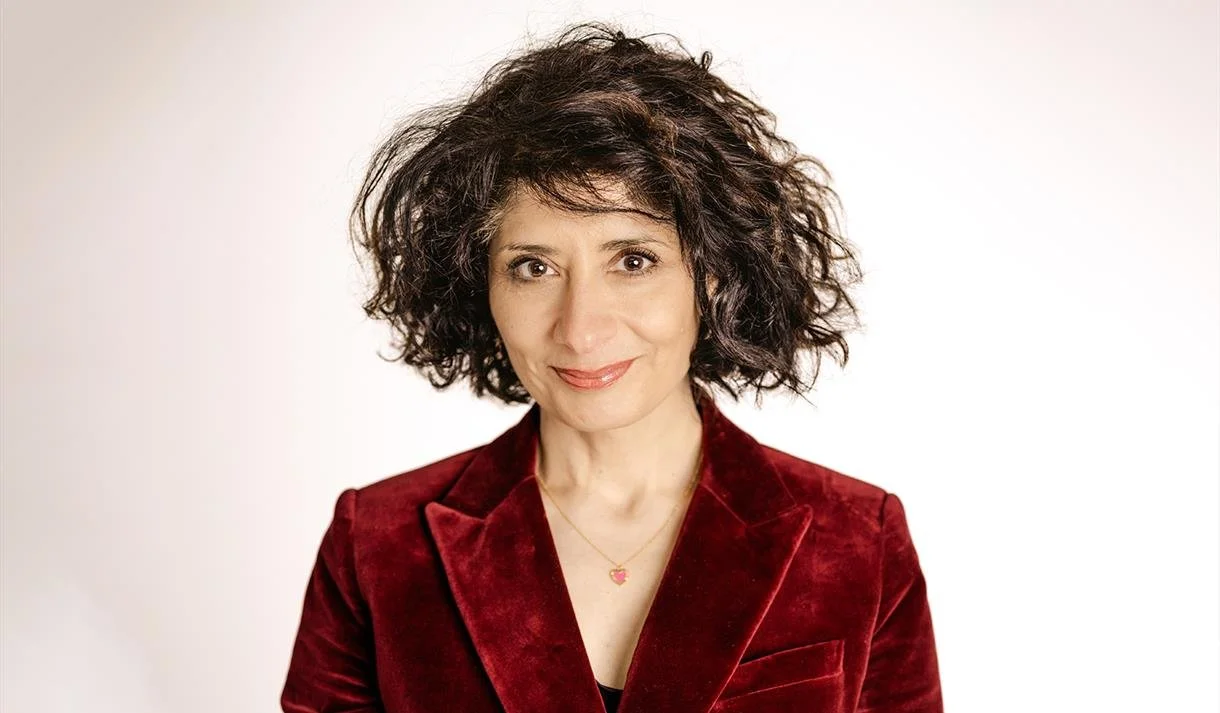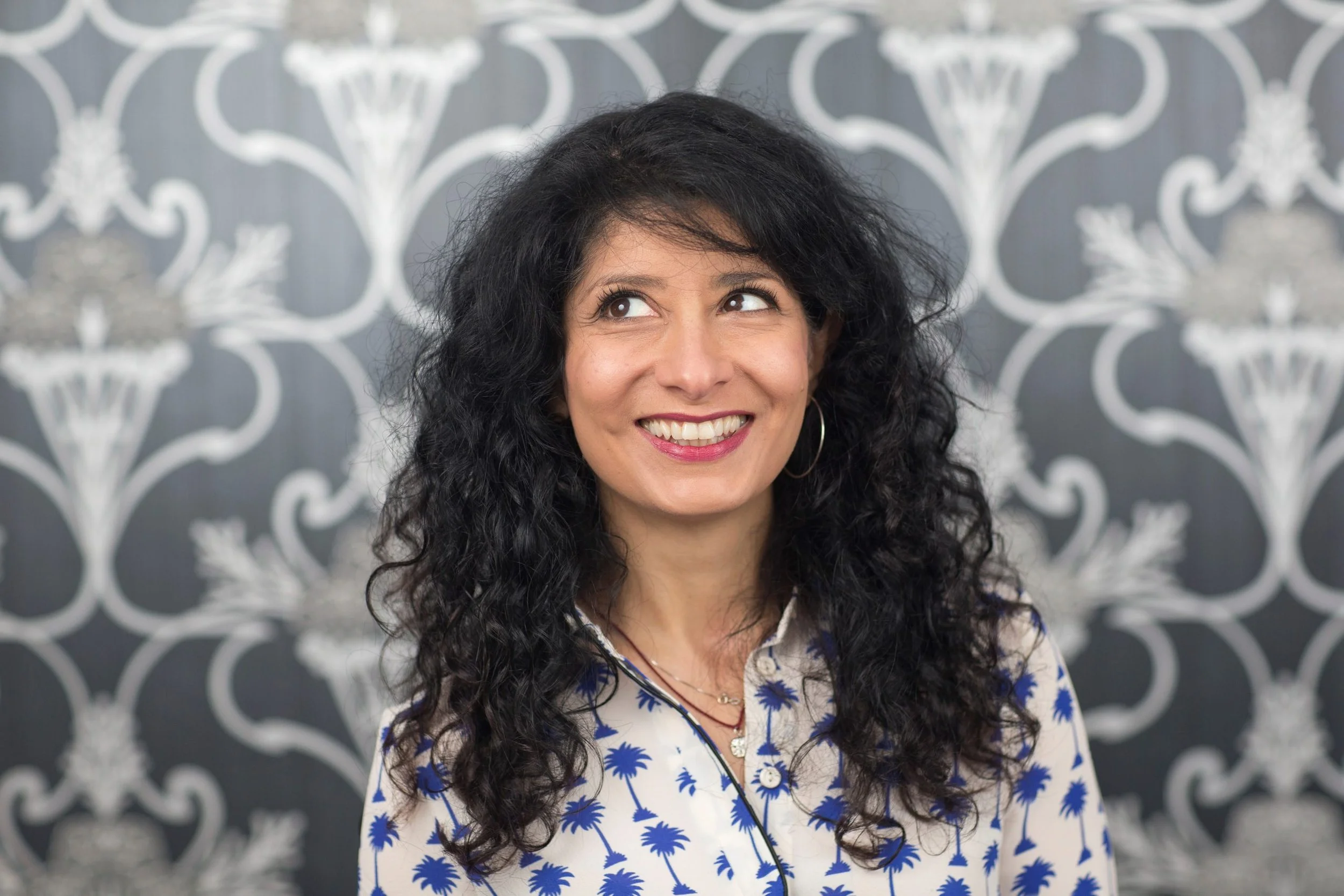In diagnosis limbo, ADHD stories bring a joyful ache
Responding to Scatterbrain by Shaparak Khorsandi
Shaparak Khorsandi
When Shaparak Khorsandi comes onstage, she’s moving at a gallop. And just like her entrance, Scatterbrain begins abruptly without a gentle lead-in, right in the middle of a thought.
We are hurled from childhood memories to a half-finished anecdote about the softly spoken condescension of West London’s cashmere-clad private school gate elite. Rambunctiously chaotic, Scatterbrain primarily centres on Khorsandi’s recent adult ADHD diagnosis, skipping between stories as if trying to catch them before they escape.
When creative work takes on something as relentlessly bureaucratic and unjust as the UK’s ADHD diagnosis process, there’s a temptation (or perhaps an expectation) that it will be a manifesto or a rallying cry against a broken system. Instead, Khorsandi folds those political realities into a performance that feels like being inside the ADHD mind itself – quicksilver and full of joyful detours.
Shaparak Khorsandi
Most of the show goes through memories and tangents that feel familiar to me; I’ve been on my own long, stalling run through the ADHD system, albeit not in the same way as Khorsandi. My own experience is of exhausting encounters with my GP, filling in endless forms and keeping a symptom diary, all in the hope of getting at least a referral. I reached the last hurdle only to be told, with a brisk shake of the head, to ‘‘get more sleep.’’ And that was it. Case closed. No referral.
For me, sitting in the audience, there is a strange ache. To watch someone name the thing I’m not allowed to name for myself, to claim it in public, and to build a whole work from the shape of that difference activates a kind of longing that’s hard to articulate. Without that naming, I remain in split consciousness certain of my own wiring, yet continually performing as though I am wired like everyone else. Masking is a skill I learned long before I knew what to call it, presenting a version of myself that fits neatly into expectation. I hide the missed deadlines, the days where starting a task feels like waging a small internal war. I hide the moments of overstimulation, so no one thinks I’m fragile. I hide until I can’t.
Yet, Khorsandi never hides. She moves at her own tempo, never pausing to translate herself into something tidier. The audience is trusted to keep up or to get lost and find their way back. One of the most memorable detours comes when she unearths her old school reports and poetry, flicking through letter pages thick with teenage angst. On the surface, they’re hilarious in their melodrama, but they also radiate a restless energy that feels unmistakably ADHD in hindsight; teachers describing a mind that wandered, words that now read less like critique and more like an early case study. The laughter in the room sits alongside recognition of how signs of neurodivergence are often dismissed. In letting us follow the labyrinthine leaps of her mind, she hands us permission to stop forcing our own thoughts into neat lines.
In a post-COVID, ableist culture obsessed with productivity, linearity, and measurable outcomes, that permission is quietly radical, but it also brings me back to the cliff edge. As I watched Khorsandi build her art around her diagnosis, I couldn’t help but think about my status in purgatorial neurodivergent limbo – a place where I am too symptomatic to ignore, yet too undiagnosed to access help.
The NHS pathway for adult ADHD is less a path than a cliff face. Referrals vanish into administrative black holes, waiting lists stretch for years, each GP visit is another chance to be told to “get more sleep” or to “try harder.” For women and femmes in particular, disbelief is built into the process. Symptoms like distraction or forgetfulness are too often dismissed as moodiness or quirks, which is why so many remain undiagnosed. Even for those who make it to the end may find themselves holding a diagnosis the NHS refuses to honour and having to pay hundreds of pounds each month for medication. ADHD care in Britain is rationed by wealth, gatekept by disbelief, and sustained by the quiet hope that you will eventually give up.
A paradox formed as I watched Scatterbrain, created by the joy of seeing ADHD embodied without apology and the longing of knowing how many of us are still waiting for the chance to name ourselves. For those of us who remain standing at the cliff edge, it is both a joy and an ache to watch someone leap.
Khorsandi made that leap tangible, tracing her racing thoughts and impulsive choices. In that candid confession, her art reveals how chaotic truths can become relatable and deeply human.
Shaparak Khorsandi: Scatterbrain; Above at Pleasance Courtyard, 20:00, 30 Jul - 10 Aug
Thank you to Disability Arts Online, who supported this Response through their Diverse Critics programme.


